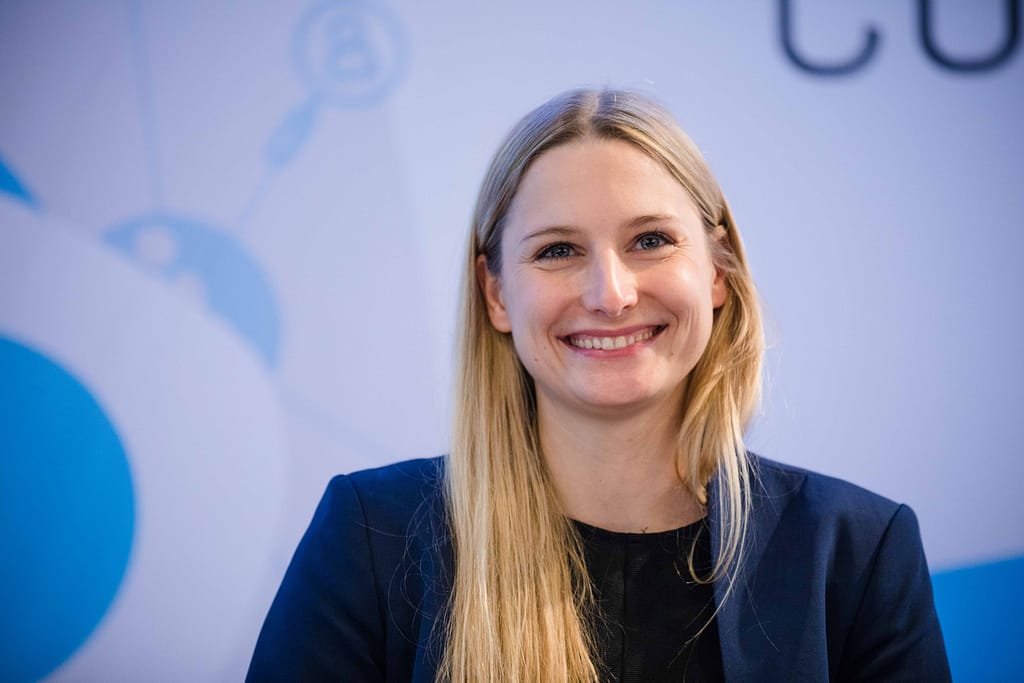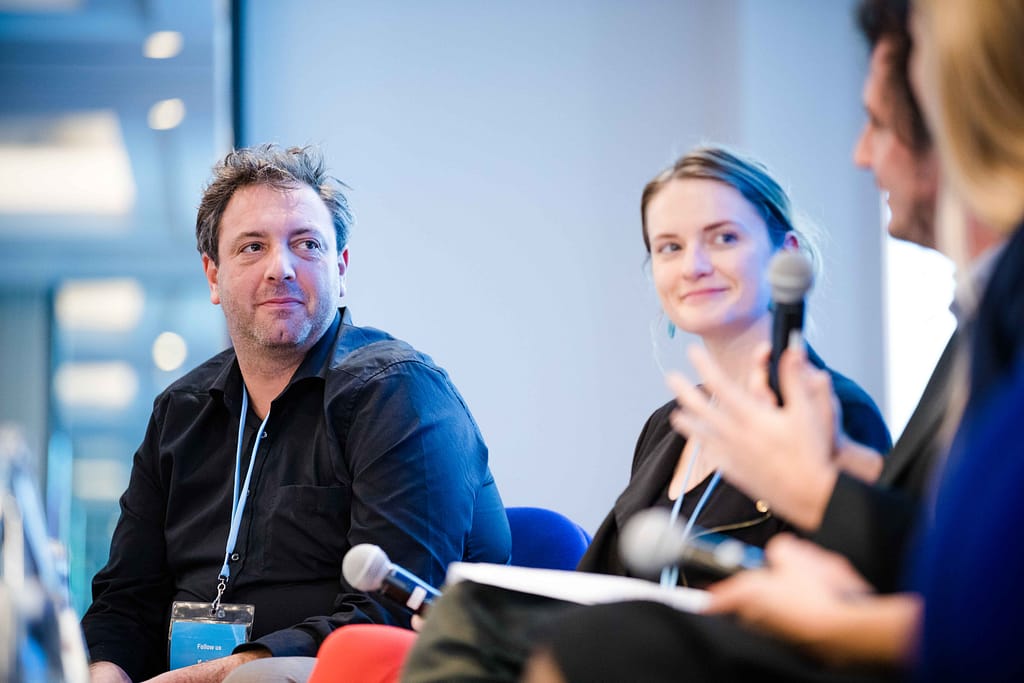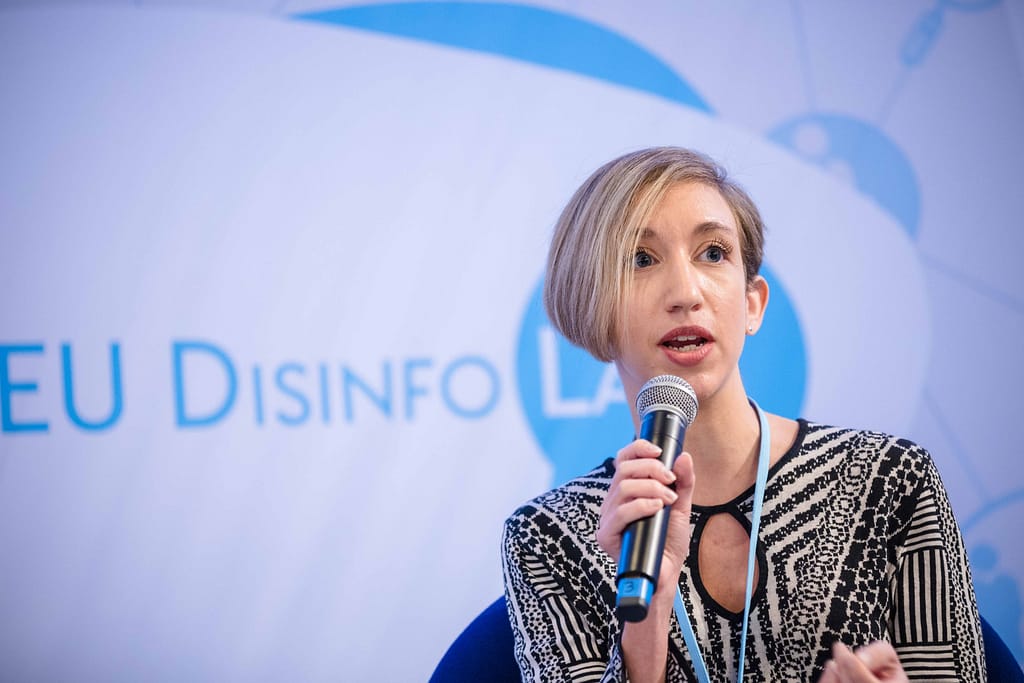#Disinfo2021: October 26 & 27
EU DisinfoLab’s annual conference took place on Tuesday and Wednesday, October 26 and 27 in Brussels at the Renaissance Brussels Hotel.
Many thanks to all of our speakers and guests. We hope you had a wonderful time! For those who weren’t able to join us this year, we hope to see you in 2022!
The event was not recorded but the slide decks from presentations and photos of the event are now available below. In addition you can:
- Check out Euractiv’s coverage of the event (also covered in Spanish).
- Read the draft report of the Parliamentary committee on foreign interference in all democratic processes in the European Union, including disinformation (INGE), which was presented by MEP Sandra Kalniete.
- See Vice-President Jourová’s remarks which she delivered at the close of the event.
- Take a look our coverage on Twitter.
Tuesday, October 26
8h00 – 9h00: Registration and welcome coffee
9h – 9h10: Welcome remarks by Diana Wallis, President of the EU DisinfoLab
9h10 – 9h40: Opening Keynote, Eliot Higgins, Founder of Bellingcat. Slides available here
9h40 – 10h15: Keynote interview, Dr. Mathias Wargon, Head of Emergency Department at Saint-Denis Hospital (Paris region), interviewed by Aude Favre, jounalist and founder of WTFake
Covid19 disinformation: feedback from French emergency rooms
10h15 – 10h45: Video Interview: Sophie Zhang, Facebook Whistleblower
When it’s time to blow the whistle
10h45 – 11h15: Coffee break
11h15 – 12h00: Presentations: Disinfo for Hire: micro-influencers, troll armies, and influence buying in the modern disinformation economy.
Disinformation is a lucrative business and often outsourced for and performed by skilled professionals and commercial marketing firms. Outsourcing provides plausible deniability to clients who wish to remain one step removed.
Moderated by Chloe Colliver, Head of Digital Policy and Strategy at the Institute for Strategic Dialogue
- Anna Gielewska, Vice-chairman of the Reporters Foundation (Poland). Slides available here
- Ieva Ivanauskaitė, Head Of Business Development at DELFI Lietuva. Slides available here
- Charlie Haynes, Reporter and Producer at the BBC. Slides available here
12h00 – 13h30: Lunch break
13h30 – 14h15: Panel Discussion, Disinfo from the Top: How should platforms tackle disinformation in global political speech?
When he was deplatformed by US social media companies, the former US president had been a “superspreader in chief. But how have platforms dealt with disinformation coming from the political ranks in other countries? What precedent is set, and what are the consequences of platforms’ differential actions according to political context, language-market, etc.
Moderated by Gregory Rhode, Board Member, EU DisinfoLab
- Emerson T Brooking, Senior Resident Fellow at the Digital Forensic Research Lab of the Atlantic Council
- Domen Savic, Director of Drzavljan D (Slovenian ngo Citizen D)
- Stephen Turner, Director of EU Public Policy at Twitter
14h15 – 15h15: Presentations, Measuring the Impact of Disinformation
One of the greatest challenges in the study of influence operations and other disinformation campaigns remains the challenge of measuring their impact on societies and individuals, human rights and democratic institutions. Three presentations will offer frameworks for understanding and evaluating the concrete impact of digital disinformation, which is essential for taking an appropriate, necessary, and proportionate response. Followed by a group Q and A.
Moderated by Flora Carmichael, Assistant Editor & Editorial Lead at the BBC
- Ben Nimmo, Head of Global Threat Intelligence Strategy at Facebook
- Ruurd Oosterwoud, Founder of DROG. Slides available here
- Georgios Giannopoulos, Team Leader at the European Commission Joint Research Center, Technology Innovation in Security Unit
15h15 – 15h45: Coffee break
15h45 – 17h00: Presentations, Understanding Disinformation Across Europe
While disinformation is a universal phenomenon it will adapt to its surrounding context. Through a series of short presentations, we will gain insight into the disinformation landscape in individual EU member states and regional trends. These sessions will be introduced by a representative of The European Digital Media Observatory (EDMO), the EU’s new hub to support the independent community working to combat disinformation.
Moderated by Prof. Trisha Meyer, Director of Centre on Digitalisation, Democracy and Innovation at Brussels School of Governance (Vrije Universiteit Brussel). Co-Lead of European Digital Media Observatory Belgium and Luxembourg (EDMO-BeLux)
- Daniel Fazekas, Founder of Bakamo.Social. Slides available here
- Raquel Miguel Serrano, External Researcher at EU DisinfoLab. Slides available here
- Viktoras Daukšas, Head of Debunk EU. Slides available here
- Dr. Myriam Redondo, Digital Verification Team at VerificaRTVE. Slides available here
Wednesday, October 27
8h00 – 9h15 Registration and welcome coffee
9h15 – 9h20: Brief welcome remarks by EU DisinfoLab
9h20 – 10h15: Presentations, Building More Trustworthy Information Environments
Normative initiatives like labels, ratings, and rankings, as well as tools for verification, allow us to differentiate reliable
sources of information from unreliable ones. Through a few brief presentations, we will look at how these kinds of normative initiatives can be used to reinforce our trust in online content.
Moderated by Clare Melford, Executive Director, Global Disinformation Index
- Olaf Steenfadt, Project Director of the Journalism Trust Initiative at Reporters Without Borders. Slides available here
- Pascal Doucet-Bon, Deputy Director of News Department at FranceTV. Slides available here
- Denis Teyssou, Editorial Manager at Agence France-Presse (AFP) Medialab. Slides available here
10h15 – 10h45: Coffee Break
10h45 – 11h30: Panel Discussion, The Future of Open Source Intelligence: Perspectives in Addressing Foreign Information Manipulation
In a conversation about some of the biggest challenges facing the field of OSINT today, we hope to find our footing on pressing issues related to transparency, accountability, information sharing, data protection, and sanctions for repeat perpetrators of disinformation. We will also discuss OSINT’s relationship to adjacent fields like journalism, intelligence, and policing.
Moderated by Larysa Lacko, Counter Hostile Information and Disinformation Officer at NATO
- Eliot Higgins, Founder of Bellingcat
- Lutz Guellner, Head of Division, Strategic Communications at the European External Action Service (EEAS)
- Lukas Andriukaitis, Associate Director at the Atlantic Council’s Digital Forensic Research Lab (DFRLab)
11h30 – 11h45: Presentation, Draft Report of the Special Committee on Foreign Interference in all Democratic Processes in the EU, including Disinformation. Read the draft report which was presented by MEP Sandra Kalniete
This session will give an exclusive first look at the European Parliament’s new report on foreign interference and disinformation. The report, authored by Sandra Kalniete, assesses the current threat level of foreign interference in the EU, including disinformation campaigns on traditional and social media, cyber-attacks targeting critical infrastructure, and economic coercion of political actors.
11h45 – 12h00: Video Message from Audrey Tang, Digital Minister of Taiwan
12h00- 13h00: Lunch Break
13h00 – 14h00: Presentations, Climate Change and Anti-Science Disinformation
The challenge of climate change disinformation and anti-science disinformation more broadly – while not new phenomena – are increasingly understood as a threat to our physical and digital environments. Three presentations will help us understand the nature of this challenge, what is at stake, and what we can do about it.
Moderated by Ms. Gwendoline Delbos-Corfield, Member of the European Parliament
- Jennie King, Senior Policy Manager at the Institute for Strategic Dialogue. Slides available here
- Faye Holder, Lead Climate Lobbying Analyst for the oil, gas and mining sectors at Influence Map. Slides available here
- Alexandre Brutelle, Investigative Journalist and Co-founder of the Environmental Investigative Forum. Slides available here
14h00 – 14h45: Panel Discussion, Facing Disinformation as a Cybersecurity Threat
Because disinformation is by nature an online risk, it is a challenge for our cybersecurity governance and ecosystem to address. In order to fully safeguard our digital infrastructure, preserve information security, and guarantee a safe and trustworthy online environment, how should stakeholders come together to address disinformation and cybersecurity in the same breath?
Moderated by Liga Rozentale, Senior Director of European Government Affairs at Microsoft
- Francesca Bosco, Chief of Staff at the CyberPeace Institute
- Karoliina Ainge, Cybersecurity and Technology Lead at Independent Diplomat, former Head of Estonian Cyber Security Policy
- Mr. Bart Groothuis, Member of the European Parliament
14h45 – 15h15: Coffee break
15h15 – 15h30: Presentation, Digital Services Act: A state-of-play, presented by Thomas Grandjouan, Advocacy Coordinator at EU DisinfoLab
15h30 – 16h30: Panel Discussion, The Implications of the Digital Services Act (DSA) for the Fight against Disinformation
The EU is currently debating one of the most important legislative proposals in the world on platform regulation. Within the Digital Services Act (DSA), several provisions could have a major impact on the fight against disinformation. What would be the implications of a far-reaching exemption of moderation of any type of self-declared media in the DSA? How can we put in place a functioning system so that disinformation researchers can effectively notify disinformation to platforms? How can we make platforms accountable for not acting on disinformation flagged to them breaching their own terms and conditions? How can disinformation researchers have a better access to platforms’ data? These are all questions that will be addressed in this panel.
Moderated by Mathias Vermeulen, Public Policy Director at AWO
- Paul F. Nemitz, Principal Advisor in the Directorate-General for Justice and Consumers of the European Commission
- Josephine Ballon, Head of Legal at Hate Aid
- Daniel Fazekas, Founder, Bakamo.Social
- Chloe Colliver, Head of Digital Policy and Strategy at the Institute for Strategic Dialogue
16h30 – 16h45: Closing Keynote by Věra Jourová, Vice President of the European Commission for Values and Transparency. Read Vice-President Jourová’s remarks.
16h45 – 17h00 – Closing remarks by Alexandre Alaphilippe, Executive Director of the EU DisinfoLab
Thanks to Microsoft for their support of #Disinfo2021












































































